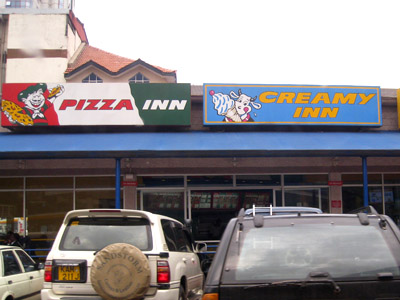2013: The year military solutions trumped African mediators

Paul-Simon Handy
An absolutely catastrophic situation.
This is how Adrian Edwards, the United Nations High Commission for Refugees spokesperson, described the situation in the Central African Republic earlier this month.
The stories pouring out of the capital Bangui and the hinterland of the landlocked CAR sketch a landscape of fear and horror.
The former Seleka rebels, who have been terrorising the population ever since the coup in March this year, are now being attacked by Christian militias, the so-called anti-Balaka.
In one week alone over 600 people were killed, according to the UN, of whom 450 were in Bangui.
As 2013 draws to a close, Africans are once again confronted with the images of French armoured vehicles rolling into a war-torn African country. This time they are attempting to drive out and disarm the rebels and restore order to the war-torn CAR. Earlier, in January 2013, France had sent over 4 000 troops to Mali and led a successful campaign against radical Islamists in the north of the country. Elsewhere on the continent, a UN Special Intervention Brigade made up of South African, Malawian and Tanzanian troops, together with the Congolese army, successfully drove out the M23 rebels from the eastern Democratic Republic of Congo (DRC) in November 2013.
In short, military intervention (generally African-led with a strong international component) has been the norm for solving complex conflicts on the continent this year. In Mali, the DRC and the CAR, but also in places like Somalia and Nigeria, with their own complex Islamist threats, the hard-line military approach has triumphed.
Though sometimes necessary and unavoidable, military solutions are always a last resort and as such reflect the failure of preventive measures such as mediation. Despite notable improvements in the last few decades and clear commitments, Africa still lacks a wide corpus of professional mediators. The laudable efforts of some leaders in mediating the continent’s conflicts (such as former South African President Thabo Mbeki in Sudan) are more due to their personal qualities and experience than to a systematic investment in the generation of professional mediators.
As boots on the ground require financial and technical means that most African countries don’t have in abundance, prevention remains the best option.
Conflict prevention in Africa must take into account the ever-changing nature of the problem. Conflicts have become more fluid with non-conventional actors alternating between insurgency and normal life, making it difficult to draw a clear line between warring parties.
The brutality of the conflict in the CAR and the addition of an unexpected religious element are a testimony to this. Mediation efforts need to carefully assess and reflect the main characteristics of each conflict. And, of course, it is very challenging to mediate conflicts involving actors who have a genuine interest in perpetuating instability.
In many instances in 2013, mediation was attempted but failed, not necessarily because of the weakness of the mediators, but because of the complexity of the crisis and the challenges posed in terms of the choice of negotiating partners. This is the case when an internationally recognised government is negotiating with fractious groups, sometimes a mixture of rebels, smugglers, illegal traffickers and jihadists.
If a military solution is inevitable to stabilise the situation, a medium- to long-term political solution is needed to end the crisis in the CAR; and this political solution cannot consist of the usual liberal approach to peace-building that France seems to prefer. The liberal peace-building approach sees elections as the end stage of a process involving heavy military and civilian intervention. This generally only works after a long transition or a coup d’état that didn’t alter the institutional fundaments of political life.
Numerous so-called high-level panels have been sent to crisis areas — the latest in Egypt after the overthrow of former President Mohamed Morsi — with very little success.
The credibility and political position of the mediators should also be reconsidered. In the DRC, for example, mediation efforts led by Ugandan President Yoweri Museveni failed for various reasons, but it certainly didn’t help that Museveni is no longer considered a democrat and has never been on good terms with his neighbour President Joseph Kabila.
Mediation is a highly sophisticated and challenging job. Barring a few exceptions — like Mbeki, who is having some success in the Sudan-South Sudan conflict — heads of state cannot always be designated to do this simply because of their stature. In 2014, imaginative solutions will have to be found to ensure peace in countries where conflict has dragged on for too long. Even the most hardened generals know that no conflict can end without some kind of a political deal.
Opting for military solutions to crises in Africa will make the continent even more dependent on external actors like France, the UK and the USA. This is another reason to invest heavily in structural conflict prevention as the AU has committed to do. — ISS









Comments